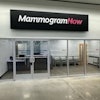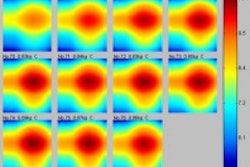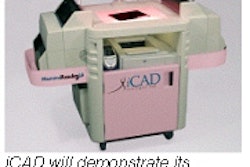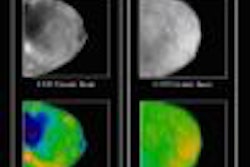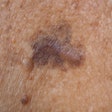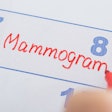Better education and training, not regulation, are needed to improve mammography skills, according to radiologists reacting to a U.S. proposal to mandate periodic exams as a way of improving breast cancer screening.
"More conservative efforts should be considered before we start requiring skills testing," said Dr. Yuri Parisky, director of breast imaging services at University of Southern California/Norris Comprehensive Cancer Center in Los Angeles.
This week, members of the Senate Committee on Health, Education, Labor, and Pensions debated adding mandatory mammography skills testing to the Mammography Quality Standards Act (MQSA), due to be reauthorized later this year.
The proposal was prompted by reports suggesting that radiologists miss up to 20% of all cancers in mammography films. In addition, a University of Washington study estimates that women have a 50% chance of receiving a false-positive mammography over a decade of screenings.
The 50% figure is one that's been bandied about for some time, but is far from the truth, according to Dr. Daniel Kopans, director of breast imaging at Massachusetts General Hospital in Boston.
"The 50% callback rate is nonsense," Kopans wrote in an email to AuntMinnie.com. "This was a poor extrapolation from incomplete data. The callback rate is much lower. Overlooking an abnormality is not confined to mammography, but to every other branch of imaging and, in fact, every observational endeavor. We even have a saying for it: right in front of your nose. A radiologist can pass a test with flying colors, but this is no guarantee that he/she will not overlook cancers, periodically."
And no test, no matter how advanced, is perfectly accurate."There are few tests of any kind that have the kind of accuracy that we would like," wrote Dr. N. Reed Dunnick, president of the American Roentgen Ray Society (ARRS), in an e-mail. "Even under the best of circumstances, mammography has a sensitivity of only about 70%-80%. We’re working to improve this and develop other tests that may be better."
Meanwhile, the ARRS is turning up the attention on continuing medical education in breast imaging. The organization is sponsoring an 18-hour CME program at its annual meeting in San Diego in May, said Dunnick, who also serves as the chairman of the department of radiology at the University of Michigan in Ann Arbor.
"Education, not regulation, should be the focus of our efforts to improve breast cancer detection," he said.
While breast cancer groups have expressed support for a mandatory skills test, radiology leaders like Dunnick say mammography is already the most highly regulated area in radiology.
"The MQSA requires specific mammography CME for radiologists as well as equipment testing, image review, and a minimum number of exams interpreted per year," he wrote. "Rather than adding individual skills testing to this burden, more opportunities need to be available for physician training."
Ensuring accessibility and improving reimbursement would go a long way toward meeting those goals, Dunnick said. In fact, more regulation may only exacerbate a growing problem.
"Mammography is poorly reimbursed and carries a high malpractice risk," he said. "Since there is a radiologist shortage, many groups have decided that since they cannot manage all the work available, mammography is the service area that will be cut."
Indeed, over the past two years an estimated 700 breast imaging clinics have closed their doors, according to a report by Dr. Leonard Berlin, professor of radiology at Rush Medical College in Chicago.
Mandatory skills testing is excessive, but something must be done to increase the quality of mammography services, University of Southern California's Parisky said.
"It’s well recognized that a medical malpractice crisis exists, related not just to mammography interpretation but also management of patients," he said.
Education is part of the answer, he agrees. Increasing MQSA basic CME requirements from the current 15 hours, which must be completed over a three-year period, would be a start.
But even more useful would be raising the minimum number of exams radiologists must read annually to be certified under MQSA, Parisky said. The act now requires 480 exams to be read annually to establish proficiency.
"That’s only about 10 per week," Parisky said. "If we want to refine the skills of mammographers in the U.S., we should increase that annual minimum number by at least two, if not three or four times."
Such a requirement would force community-based and private practice groups to stop playing "mammography roulette," using rotating radiologists to read screens, and instead designate one or two dedicated mammographers, Parisky said. Such a move would also bolster radiologists’ self-confidence about breast imaging as well as mammography expertise.
Last but not least, the mandate would result in a natural attrition of radiologists with sub-par mammography skills, Parisky said.
"Increasing the amount of training and education required, through a higher volume of minimum films read and more CME, will weed out mediocre mammography practices," he said. "I don’t lament the fact that 700 clinics went out of business. If you saw the quality of the work that was being done, you would see that it was actually a good thing."
The Senate committee is continuing to debate the issue, and may consider an interim two-year reauthorization, during which time government agencies can evaluate mammography service accessibility, physician training, and the impact of mandatory skills testing on both.
"I believe that requiring a test, at the present time, would be a disaster," Kopans stated. "Radiologists are now avoiding going into the field because of their concern over the malpractice exposure...we need to address the malpractice issue first by protecting radiologists from being cited for negligence when a cancer is visible in retrospect. Once radiologists are protected, then testing will be much more acceptable."
By Deborah R. DakinsAuntMinnie.com contributing writer
April 10, 2003
Additional reporting by Shalmali Pal.
Related Reading
Lawmakers mull mandatory testing of radiologists' skills in reading mammograms, April 8, 2003
Recently trained radiologists may interpret mammograms more accurately, February 27, 2003
Mammogram reading skills vary widely among community radiologists, September 18, 2002
Mammographers question newspaper’s ‘crusade’ against breast imaging, June 28, 2002
Copyright © 2003 AuntMinnie.com
